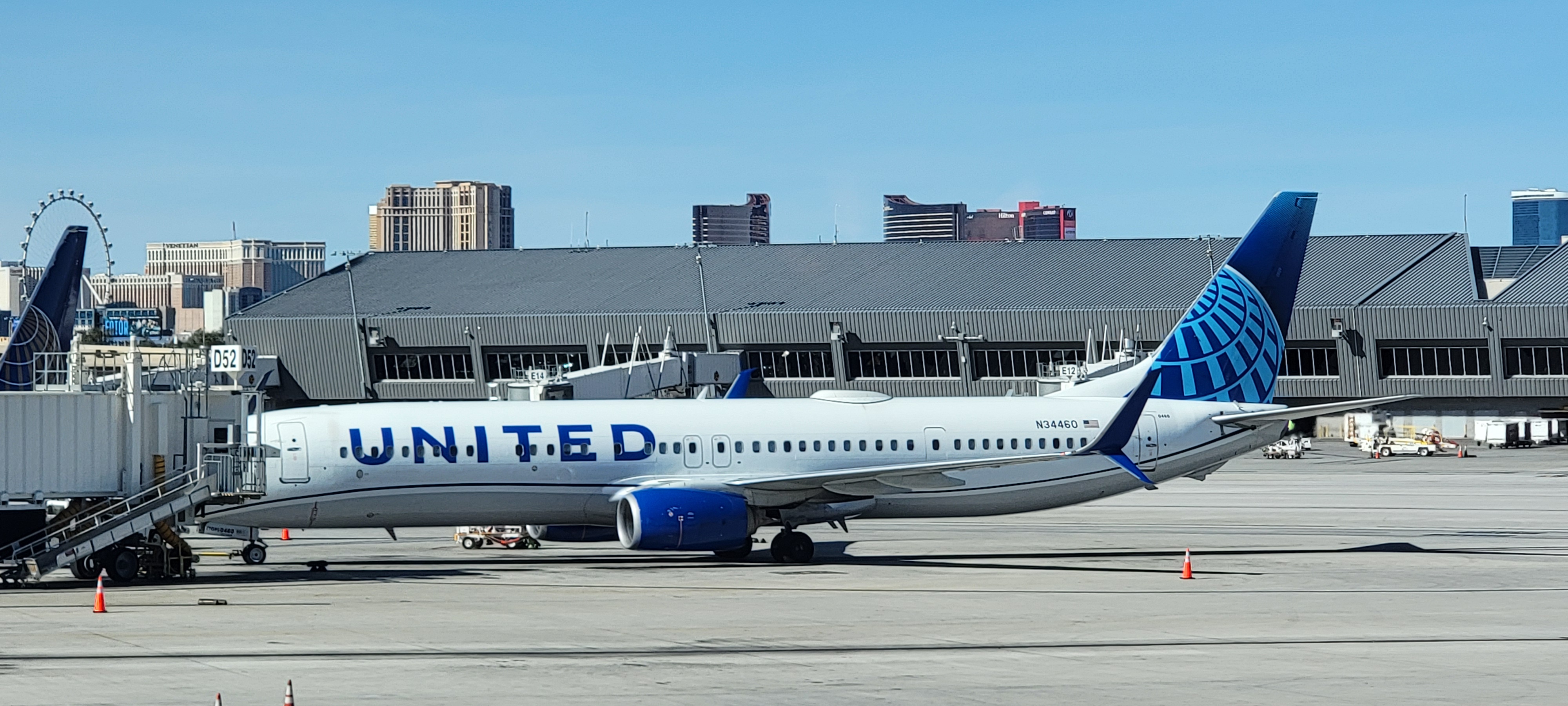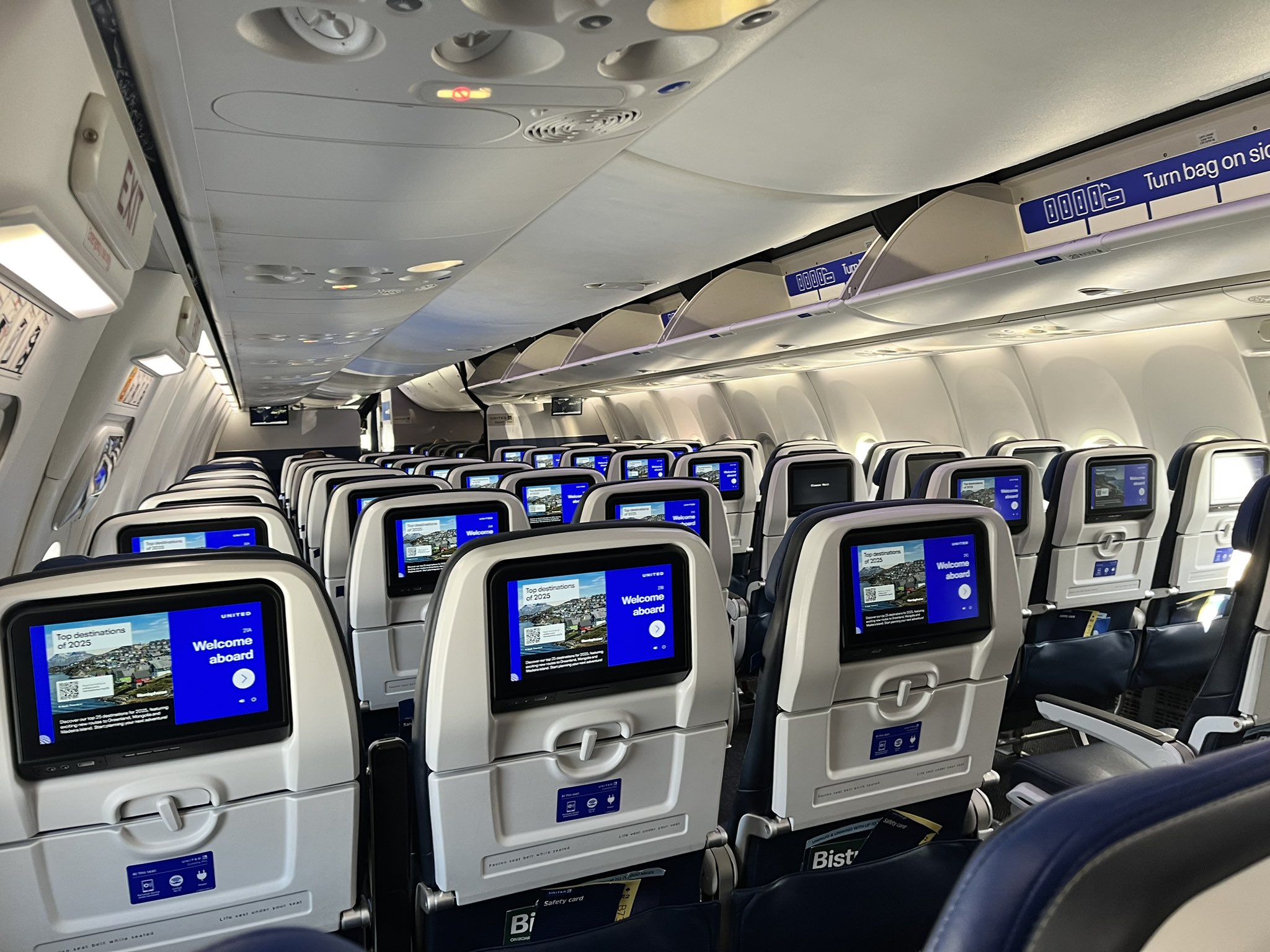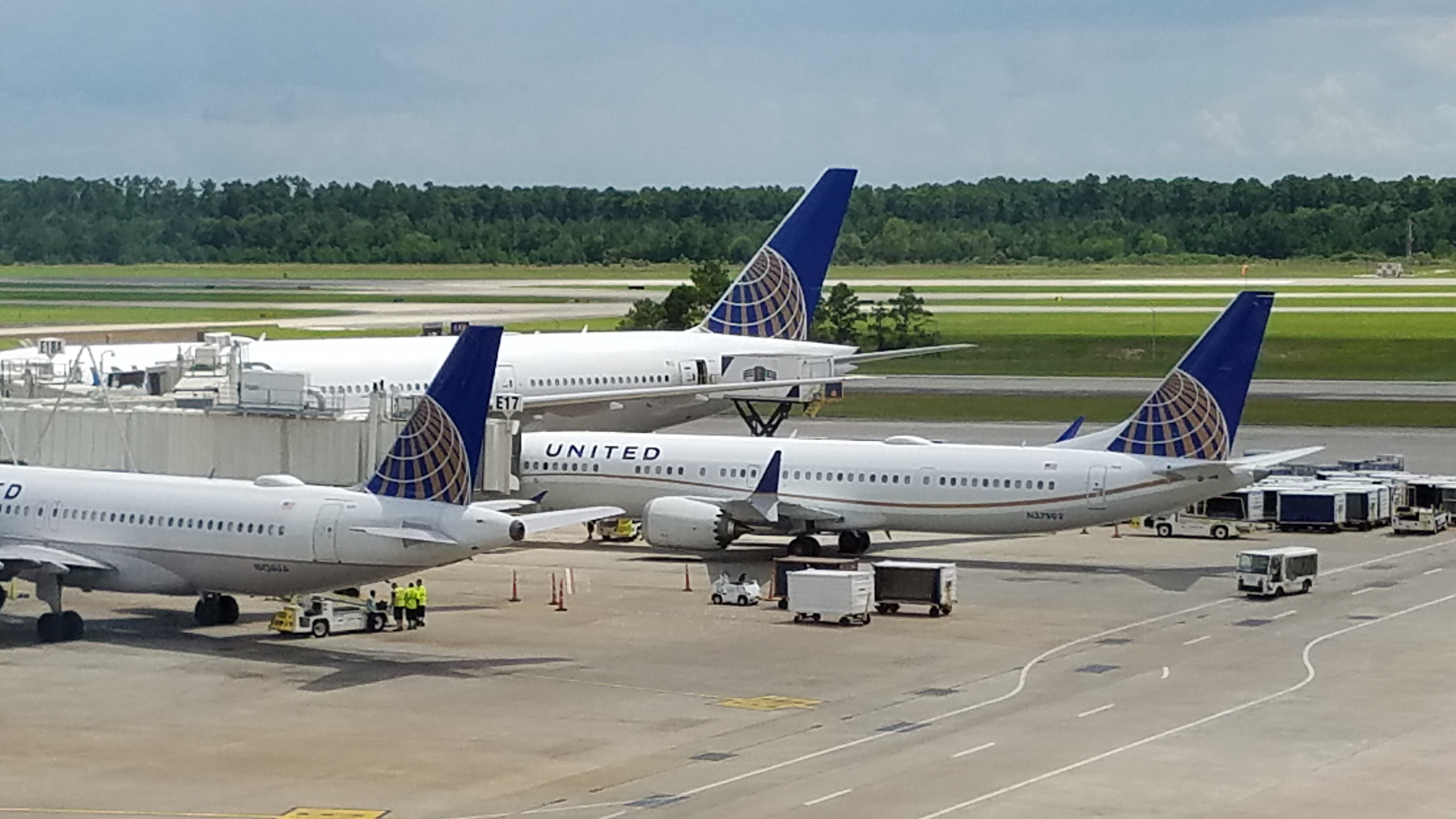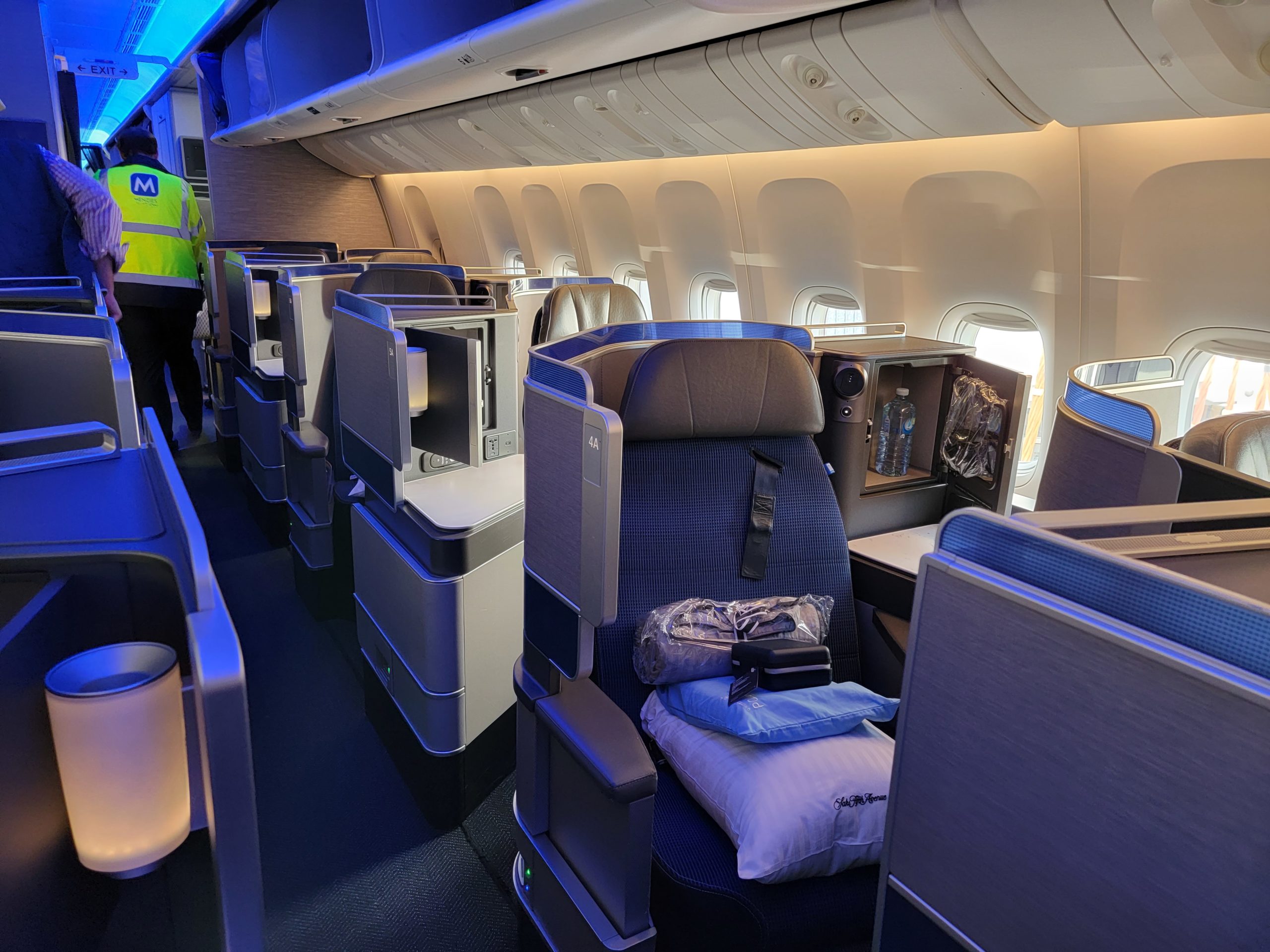United Airlines shared during their earnings call on Thursday that they have been making a lot of basic economy fares available to try to fill planes cheaply over the past three months, and that economic uncertainty slowed business demand. But airlines are all pulling back capacity, and United is seeing business travel pick back up in particular.

United’s CEO Scott Kirby is always great to listen to because he (1) has clear theses about what’s going on in the industry and doesn’t shy away from sharing them, and (2) seemingly loves to ‘hit down’ against rivals who are struggling. Favorite targets include his former employer American Airlines, and ultra-low cost carriers. He’s full of praise for Delta, because they’ve done well and wants to paint his own strategies as being in line with theirs.
Kirby says that everyone else is losing a lot of money on a good portion of their flying, will have to cut that flying eventually, and that’s going to make United (and Delta) more money when it happens.
And if I dig deeper into it and I look at every airline that’s not named United or Delta, I can find at every single one of them, a double-digit percentage of their route network that loses money. And the only way for them to get margins that are anywhere close to their WAC is to stop flying places that lose money. And that is going to ultimately happen.
I don’t think it’s going to happen tomorrow. I don’t think it’s going to happen in the near term. But I can look at how much money is being lost route by route and know that economic gravity is ultimately going to win. So I think actually, the results are going to — in total, the industry is going to go in the same place for supply, but the results for the 2 winning airlines are going to be outsized in that environment.

We’ve aleady seen airlines pull back flying for the fall, in anticipation of lower demand. That’s focused largely on early morning, late night and redeye trips and off-peak days.
It’s not clear how much lower it goes, when you consider that Kirby has made the case in the past that cutting flying is usually a money-losing strategy: flying even with low revenue is good because non-fuel costs are mostly fixed. You have planes, gates, and people on the books anyway. In United’s experience before he got to the airline, he says, they pulled back capacity and got their average fare up, but their average costs were higher, too. Operating the marginal flight is cheap!

It’s very difficult to cut to profitability. You have to do it in big chunks – cutting out a whole airport, or at least cutting 8-10 flights at a time to give up gates, and downsizing pilots and flight attendants and gate agents and telephone customer service agents and mechanics, too. JetBlue is downsizing, but has so far tried to get employees to take voluntary leaves. It might not stop there.
United, in prosecuting its case against low cost carriers, has also said that they cannot cut themselves to profitability either. So it’s a bit of an odd take to predict that other airlines are going to pull back capacity because they are not profitable overall, while Delta and United will be able to then maintain their flying while charging more since they face less competition.
And Kirby is always predicting higher fares. He laid out his theory for higher fares way back in 2018 that lowering fares is self-defeating, doesn’t bring in more sales it just lowers the revenue earned from each ticket, and that airfares would double because they should be a fixed percentage of GDP.

Except this has never happened for as long as he’s been predicting it – and United has been lowering prices (more basic economy) the past three miles, while Delta thinks they can offer targeted lower prices using AI.
Another odd claim from United’s earnings call came from Andrew Nocella, United’s Chief Commercial Officer.
There’s been less demand from Europeans to fly to the United States this summer. U.S. passengers seem to be holding up on their desire to travel across the Pond. During Delta’s earnings call, they suggested that the falling U.S. dollar actually helps here – stronger foreign currencies offset fewer foreign passengers.
Nocella says that they aren’t much by this trend for a different reason,
United disproportionately boards U.S. citizens out of the United States. And so any changes in demand from outside of the United States into the United States is the brunt of that change is more felt by foreign flags.

It’s true that United is selling more to Americans than Europeans, and Lufthansa sells more to Germans and Europeans than Americans, but the idea that this doesn’t hurt United is weird since United Airlines shares its revenue with Lufthansa (and Swiss, Austrian Airlines, Brussels Airlines, and Eurowings as well as Air Canada) across the Atlantic.
United has been right that investing in growth – both in their domestic and long haul networks – and leaning into premium demand has been profitable. But when they make confident bold assertions about future performance, that are in tension with their own past claims and plans, I start to wonder whether to apply a discount to the likelihood of their forward-looking bets being nearly as correct.


He’s never short of opinions, that’s for sure
He’s right about a lot the supply and demand dynamics in the short term. Long term, when the supply of planes, engines, seats, and labor beefs up, the other airlines will be able to lower their costs (on inflation adjusted basis) and start undercutting United… just like how it was before Covid.
This just in… pot calls kettle black.. more at eleven.
I found a lot of award business class seats at 80K transatlantic this summer. Grabbed two from LHR to IAD.
@charlie — Westbound is ‘cheap’ because a lot of Europeans don’t want to visit the USA anymore… wonder why… (Eh, whatever… I was told not to worry about it, you know, ‘overreacting,’ and TDS…)
With the majority of US airlines either posting large losses or very small profits, why would it be bad if fares went up?
Don’t we want a healthy airline industry that has more successful airlines versus a small number of profitable airlines and a large number with very shaky outlooks, unable to invest in their own company?
That’s what he’s hoping for…
@Mark — Yeah, I hear you, but as you know, airlines (and transportation generally) are typically low-margin businesses. And because there’s so much competition (from other airlines and other modes of transport to people simply deciding travel is a luxury that’s too expensive) if airlines raise prices too much, they’ll just kill off their customer base. Ultimately, these businesses have to ask: are our customers the banks and investors, or is it the traveling public?
Kirby has always wanted the world to talk about him – but he fails to remember that UA was BELOW the line that was set by DL in profitability and every other metric.
Now, he wants to believe that there is a magic line ALONGSIDE Delta – that UA has crossed and no one else will be able to cross.
It is pure arrogance to think that UA could turn itself around and join “DL’s club” not AA and WN can’t do the same.
and, yes, airline stockholders want all airlines to be healthy but consumers do far better having a good chunk of the industry flying just above the surface.
AA is by far the most consistently minimally profitable airline and they have been able to survive for nearly 2 decades; the banks that they borrow from do far better than their stockholders – and they provide cheap transportation to millions of customers.
I think AA can turn it around but it will be long and slow and it won’t be a dramatic turnaround.
WN is who to watch. They could very well end up being as profitable as they once were even as become a true global challenger to the big 3.
If UA can steal away a bunch of execs from AA, WN mgmt is more than capable of pulling away the talent it needs to turn WN into a global powerhouse given their already very impressive US network
@Tim Dunn — On AA (and Citi), it appears they’re about to ‘try harder’ soon. Reports at DoC and FM suggest the Prestige (now Strata Elite) is making a return, possibly new applications this weekend. On co-brand with AA, the talk is 4 AC passes/year, later AA transfers (would be nice). Time will tell what the ‘fine print’ says. That’d be a life-line to AA, for sure. So, I ask again, who are the ‘customers’ here? Is it the passengers, or the banks/investors? Probably a mix. But the airlines still have to actually fly for that to all work out well in the end.
@Tim Dunn — On WN, you are far more hopeful than I am, and maybe that’s because you’re looking at this more from that of the investor perspective. As I focus on the worker/consumer side, I don’t think too many folks that were laid off recently or those who soon have to pay to check bags are pleased at all. That said, we’ve talked before how an eventual merger or acquisition (by DL?) could get spicy!
United is charging more while giving customers less and Kirby predicts that his airline will charge customers more in the future. What an amazing prediction. Easy to see how this guy made CEO.
The economy is slowly falling apart. TATL demand is collapsing. I have never seen so many business class awards popup in my life.
If anything, airfares need to come down big time.
Ed,
no, the economy is not falling apart. The drop in European inbound travel is opening up award seats in August.
If it persists into next year, airlines will start pulling down capacity earlier. But Americans are still going to Europe and are doing so well into the fall. The dropoff in Europeans to the US is reducing demand at a time when demand is usually strong – but will return to normal levels in September and beyond
If an airline wants to be a full services company, they will most likely have to fly some routes that are unprofitable. They won’t be the go to company for a lot of passengers if those passengers have to fill some of their travel routes on competing airlines. Of those routes that are unprofitable, if other companies quit flying them, the remaining company or companies can raise fares enough so that they are profitable, unless there are very few people flying them. Of course subsidies can make unprofitable routes profitable, too. I doubt United will exit many routes that can become profitable by competitors once United is out of the way. What I read about Rockefeller putting a competing gas station across the street and losing money selling low cost gas, subsidized from other profitable stations, comes into play. He did it until the competition failed, then raised prices.
it’s also worth noting that AA and DL have far more overlap with B6 and NK, probably the weakest two airlines in the industry than UA does.
So the notion that UA was going to knock anyone out and benefit – beyond trying to convince regulators that it should be able to buy B6 – was always far-fetched
@jns — No need to go as far back as Rockefeller’s Standard Oil, how about Walmart, generally.
@Ed — As much as I am not in-favor of #45/47 or his policies, the economy is not yet falling apart. Sure, the poor are about to get a lot poorer, and the rich are about to get a lot richer, but no, there is not a collapse yet. If you rely on Medicaid, are employed by the federal government, or work at PBS/NPR, then yeah, this is gonna hurt a bit (and is also morally objectionable). That said, if he fires Powell, or does the extreme tariffs, that could affect us all, but so far it’s all a decoy and TACO. Psh.
@jns – Agreed. It’s a little myopic of ol’ Scott to zoom in on every individual flight without looking context. Then again he is a soulless bean counter at heart. I miss Oscar with his compelling sense of vision of a better United for employees and passengers and the relentless drive to make it happen. You just couldn’t help getting swept along.
Have been flying a bunch of United domestic first class segments lately. They’re all fairly basic vs. what a real premium class is (I got no food on a 3-hour flight over lunch time!!!) but their frontline employees were pleasant and the cabins mostly modern. They were definitely far, far better than the few American Airlines segments I had (none of which even had screens, including on a 5 hour flight!!!) where personnel was totally disinterested, service haphazard, and the seats so bad I got a back ache.
@1990.
Westbound travel has fallen off? Say it isn’t so. We are all here armed with our water guns to give them a taste of their own medicine.
The poor are not going to get poorer and the rich are not going to get richer. With all of the open jobs in this country, there’s no reason why an able bodied person should not work to have the satisfaction of work and to “earn” some of the subsidies that the taxpayers dole out. There will be exceptions to this but the exceptions will not be the rule as they are now. According to the IRS, the top 1% of taxpayers earned over 20% of the adjusted gross income and they paid a WHOPPING 40+% of the federal taxes paid. One can’t buy or sell a percentage…only the dollar. The super rich were, indeed, at only an 8%ish tax bracket and most of the wealth was in UNREALIZED GAINS which is only taxed when the asset is sold. No one should pay a tax on money that they can’t immediately lay their hands on. Sell the asset and NOW they will pay the tax man in DOLLARS, not percentages. Too many people scream, “XXXX is a RIGHT that every citizen has.” Well, read the United States Constitution carefully and read what RIGHTS are granted to every CITIZEN. If it ain’t (sic) in the Constitution…it ain’t a right.
Hey Gary,
So many of us want yonknjw what is the record for the number of times @1990 and @Tim Dunn post comments in a single story? Also, how quickly do they comment after you post a story? It must be just seconds.
@Coffee Please — *pew pew*
@David Read — Do you think Gary wants less engagement on his website, or more? Thankfully, he doesn’t seem to micromanage comments; while other sites police like crazy, or gave up all together (like TPG). I applaud Gary for encouraging free expression of ideas, and yes, some playful banter, too. Got anything on-substance, or just gonna go ‘meta’ on the comment section? Like, give us a ‘hot take’ on Kirby or something’… c’mon.
The stock market is in a lot of ways like a confidence game or a Ponzi scheme. If everyone was to try to cash in their stocks, ETFs, etc. at one time, the whole system would collapse worse than it did during the Great Depression. Most would get nothing for their securities. This is why I think unrealized gains should not be taxed. Although the financial metrics people like to say that they are solid assets, there is really nothing solid about them. I play the game with retirement funds like a lot of people. But I do not have a belief of permanence in this world.
@ David read. People give Tim Dunn a hard time but he has sense enough to ignore narcissistic gasbags like 1990.
@ Mark
No. The incumbents have the clout & like their incumbency. What might work in the public interest has nothing to do with anything.
Well, Kirby indeed has a direct interest in saying what he is saying. Still, it’s also true that he certainly has more inside information about the state of the industry than anybody here.
Jetblue said it explicitly. They’re depending on borrowed money to keep the airline flying. So, what Jetblue is saying about themselves is what Kirby is saying.
By the way, UAL had higher before-tax margin than DAL in Q2 excluding the issues at Newark. Newark is already behind and it’s just going to get better for UAL as they keep getting more narrow bodies which will lower their CASM faster than anybody else.
The writing is on the wall. Kirby clearly looks like the winner. He made bold decisions during Covid whereas other CEOs were scared to move.
There was recently an article on Barron’s about how he got everything right and how he has made United the leading US carrier.